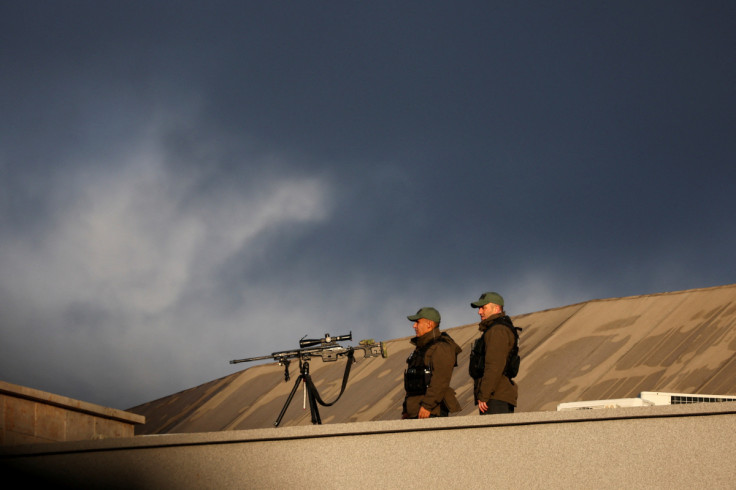EU Seeks To Reassure Frustrated Western Balkans Leaders Amid Fears Of Russian Influence

European Union and Western Balkans leaders met in the Albanian capital Tirana on Tuesday for a summit meant to reassure the region of a future in the wealthy bloc amid fears of rising Russian and Chinese influence.
The leaders of the six Balkan countries of Albania, Bosnia, Kosovo, Montenegro, North Macedonia and Serbia have long expressed disillusion that negotiations have not started or are stalled, years after being promised eventual EU membership.
While reluctance over further enlarging the EU is rife among member states, Russia's invasion of Ukraine has pushed them to focus more energy on bringing the region closer to the bloc.
"I am absolutely convinced that the future of our children will be safer and more prosperous with the Western Balkans within the EU and we are working very hard to make progress," EU Council chief Charles Michel said at the start of the meeting.
In a concrete step towards integration, telecommunications operators from the EU and the six Western Balkans leaders signed a deal on Tuesday morning, at the start on the summit, on a cut in data roaming charges from Oct. 2023.
While some of the Balkans leaders welcomed that step, they also stressed they wanted more.
"Kosovo will be submitting its application for EU membership by the end of this year," its president, Vjosa Osmani-Sadriu, said as she arrived at the summit, stressing that she hopes an EU summit next week will approve visa liberalisation for Kosovo.
RUSSIA
Old tensions within the region were also clear as she criticised Serbia's attitude and said Kosovo was "100% aligned" with EU views.
"Whether you stand with Ukraine today or you stand with Russia should matter, whether you have sanctions against Russia or not should matter," Osmani-Sadriu said.
Meanwhile, Serbian President Aleksandar Vucic said as he arrived at the summit: "Is Serbia too close to Russia? Serbia is an independent country."
Serbia, he said is "on the EU path and that will remain so," but also needs to defend its own interests.
The EU's aim is to give greater stability to a region that emerged from the break-up of Yugoslavia and the ethnic wars of the 1990s but is still racked by tensions.
But moves towards closer integration are also designed to deny Moscow a gateway for causing trouble at what is seen as a soft spot on the 27-nation EU's southeastern flank.
Serbia in particular, which was bombed by NATO two decades ago, has long struggled to balance historically close ties with Russia against aspirations for economic and political integration with the West.
EU leaders will also push their Balkans counterparts to be more forceful in implementing EU standards such as the rule of law, gender equality, the protection of minorities and the fight against corruption and organised crime, while aligning with EU policies such as the sanctions on Russia.
At the same time, the EU has been working hard to plug what it sees as loopholes in the visa regimes of several Balkans countries that have helped boost the number of migrants crossing into the bloc.
© Copyright Thomson Reuters 2024. All rights reserved.











